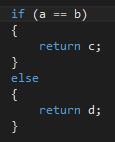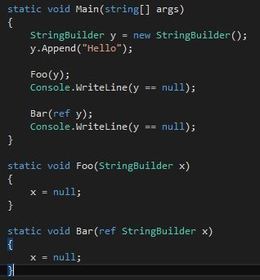Close

What is the result of this expression if both a and b are true?
a ^ b
What is the syntax using the ternary operator which could replace this statement?

Which of these statements is true regarding a 'switch' statement?
1) the 'default' statement is optional
2) each 'case' statement must contain a 'break'
3) you can use more than one 'case' statement to test for a particular value
4) the code after each 'case' statement must be contained in parentheses
What is the signature of a method named 'square' which extends the int data type?
What does the modifier 'virtual' indicate about a method?
What is the signature of an indexed property for a class which contains an internal collection of ints?
What is boxing?
What is unboxing?
What is the intern pool?
What is the maximum number of parent classes which a class can inherit from?
What interface should be implemented to allow two instances of a class to be compared to one another?
What interface should be implemented to allow a copy of a class to be produced?
Which looping construct should you use when you know the number of items in a collection and you need to remove some items from the collection?
You have a variable which you want to check for a null value. If the value is not null you want to execute a method on the variable.
What technique performs best for this?
Which of these describes contravariance with respect to a method that is assigned to a delegate?
1. The method accepts a parameter that is a base class of the parameter type defined in the delegate.
2. The method returns a type that is derived from the delegate's return type.
Which of these describes covariance with respect to a method that is assigned to a delegate?
1. The method accepts a parameter that is a base class of the parameter type defined in the delegate.
2. The method returns a type that is derived from the delegate's return type.
What are the signatures of:
- a method Add which accepts two int parameters and returns an int?
- a delegate of this method?
- a variable of the delegate type?
What two delegate types are build into the .NET Framework? What can each be used for and how many parameters do they accept?
Which looping construct ends with a semi-colon and executes at least once?
By default, what type are parameters to a method
What would this output?


 Hide known cards
Hide known cards